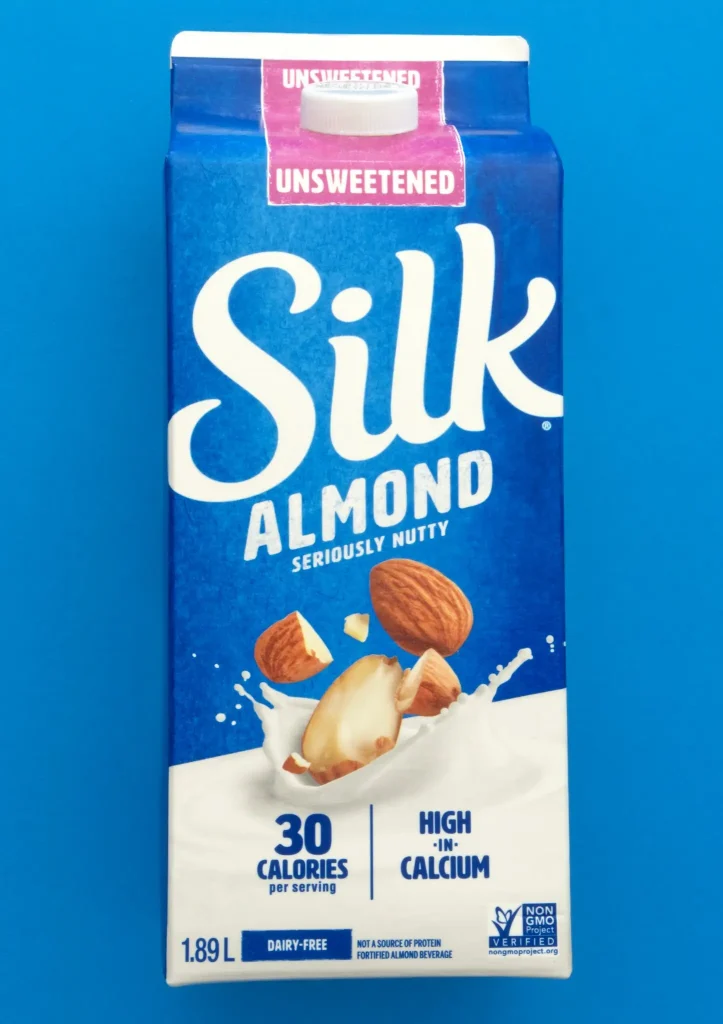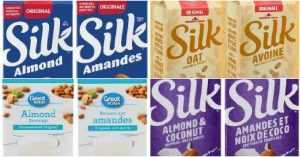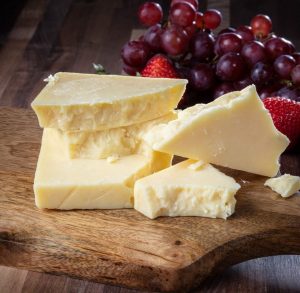
The Silk and Great Value brand drinks made from nuts, oats and coconuts were pulled from stores last week.
Two Canadians died from infections caused by listeria after drinking popular milk substitutes based on almonds, oats, cashews and coconuts that were sold under the Silk and Great Value brands, the country’s health department said Wednesday night.
Another 10 infections, most of them affecting residents of Ontario, have been confirmed by laboratory tests, the department, Health Canada, said in its health notice.
Silk, which is owned by Danone, the French food giant, said on its website that the contaminated drinks were made in a “third-party manufacturing facility.” It did not identify that factory, but said it remains closed while the cause of the contamination is being determined. Jennifer Vincent, a Danone spokeswoman, would not name the manufacturer. But she said the plant is in Ontario and that none of the products were distributed outside of Canada.
Because of Canada’s privacy laws, no personal information about the victims was released.
Last week, the Canada Food Inspection Agency announced a recall of 18 of the drinks sold by the Canadian subsidiary of Danone, which also produces a number of traditional dairy products and owns several mineral water brands including Evian. The refrigerated plant-based products are sold in milk cartons and are viewed by some as a healthier alternative to cows’ milk.
“The news in this notice is devastating,” Frédéric Guichard, the president of Danone Canada, said in a statement. “We are working with the utmost seriousness and in close partnership with the authorities to thoroughly investigate and shed light on the circumstances surrounding this event.”
Health Canada said that 10 of the people who were made ill live in Ontario and that two others come from Quebec and Nova Scotia. It also said that nearly 60 percent of the people infected are older than 60.
Older people are more likely than others to die from the bacterial infection, according to Health Canada. The health department said products containing the bacteria generally do not have any odors or other signs of contamination. Listeria can cause nausea, gastrointestinal discomfort, vomiting, persistent headaches, brain infections and fever.
In 2008, cold cuts contaminated with listeria made by Maple Leaf Foods, one of the country’s largest meatpackers, killed 22 people and made 57 others ill. The Conservative government at the time was criticized by some members of the medical community for its handling of the crisis.
A correction was made on
:
A picture of a dairy farmer pouring milk included in an earlier version of this article was published in error. Listeria has been detected in retail milk substitutes, not retail milk products, according to Canada’s health department.
Food Safety Issues and How to Avoid Them
-
E. Coli: The bacteria, which has recently been found in ground beef and walnuts, sickens an estimated 265,000 Americans each year.
-
Norovirus: The virus is extremely contagious, and, as anyone who has had it can tell you, extremely unpleasant.
-
Salmonella: People often get sick with salmonellosis, the infection caused by the bacteria, after eating undercooked meat or other contaminated foods.
-
Listeria: Most people who ingest listeria, bacteria naturally found in the soil, don’t get very sick. But certain high-risk individuals can fall seriously ill.
-
Raw Milk: A growing number of states have allowed the sale of raw milk. Its proponents argue that it has several health benefits, but is it really safe?
-
Expiration Dates: When is the right time to throw something out? J. Kenji López-Alt explains why many pantry items remain safe well past their expiration dates.
You can now read the most important #news on #eDairyNews #Whatsapp channels!!!
🇺🇸 eDairy News INGLÊS: https://whatsapp.com/channel/0029VaKsjzGDTkJyIN6hcP1K






















